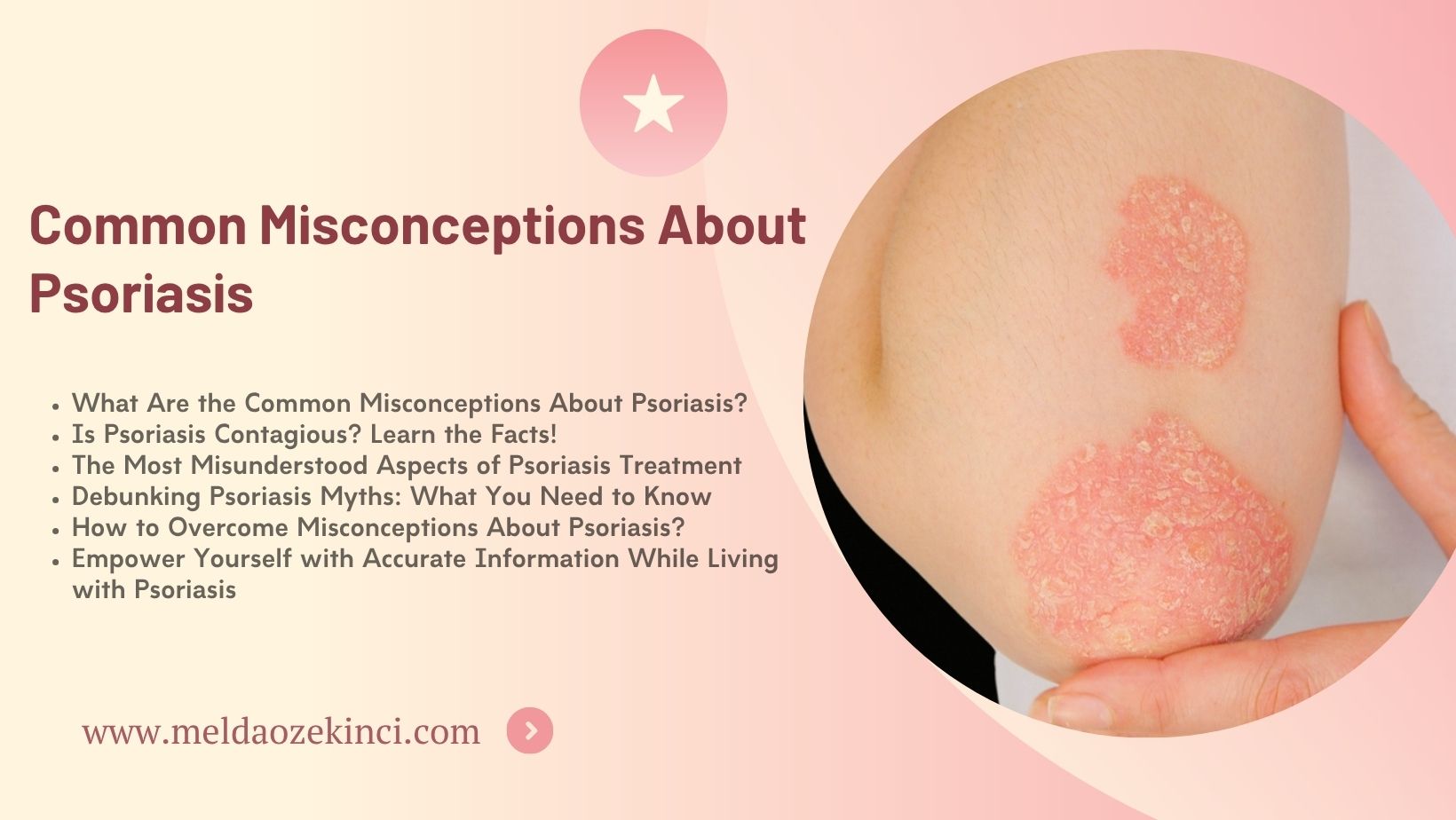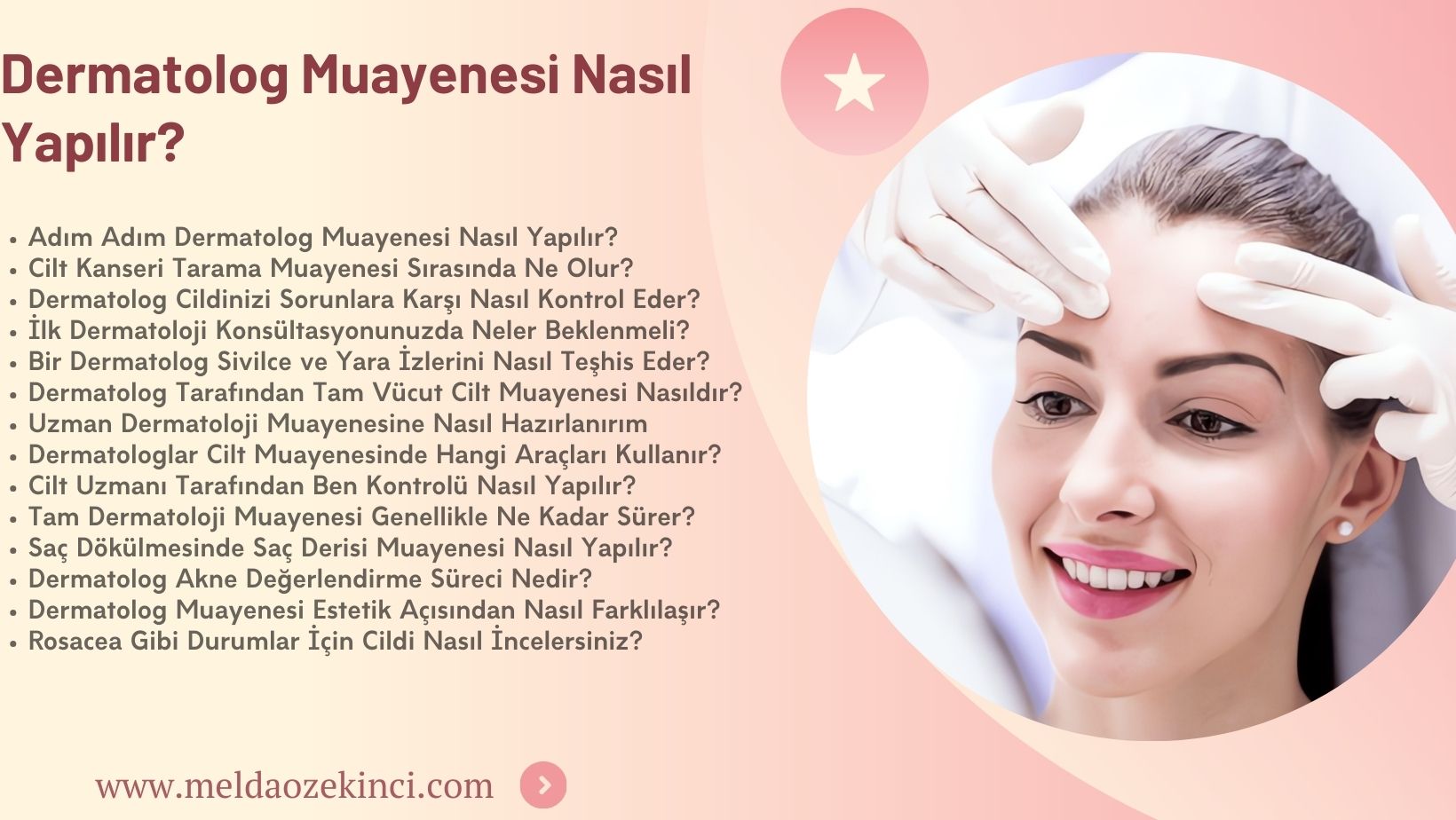Table of Contents
- Common Misconceptions About Psoriasis
- Is Psoriasis Contagious? Learn the Facts!
- Most Misunderstood Points in Psoriasis Treatment
- Debunking Psoriasis Myths: What You Need to Know
- How to Overcome Misconceptions About Psoriasis
- Empower Yourself with Accurate Information While Living with Psoriasis
Common Misconceptions About Psoriasis
Many commonly held beliefs about psoriasis in society do not reflect reality. One of the most common is the idea that "psoriasis is contagious." In reality, psoriasis is not contagious at all; it is a chronic condition related to the immune system. Another misconception is that only the visible skin lesions are important. However, the disease has deeper impacts, including joint pain, psychological stress, and significant reductions in quality of life.
Another frequent misunderstanding about psoriasis is the belief that it can be completely cured. Current treatments can largely reduce symptoms and keep the condition under control, but completely eliminating it is not yet possible. The idea that it "only affects the elderly" is also false; psoriasis can occur at any age, even in children.
Another false notion is that stress alone triggers psoriasis. In reality, multiple factors—ranging from genetic predisposition and immune system disorders to environmental triggers and certain medications—can act as triggers. Moreover, saying it "only affects the skin" is an incomplete perspective; psoriasis can also lead to systemic conditions such as joint inflammation (psoriatic arthritis).
The idea that sunlight is harmful is also a misconception. Controlled exposure to sunlight, without overdoing it, can actually alleviate psoriasis symptoms. The key is control; overexposure can pose risks to both skin and overall health.
Is Psoriasis Contagious? Learn the Facts!
For those encountering the term psoriasis for the first time, the biggest question is: is it contagious? Red, scaly plaques and itchy rashes that we often see may cause fear of contact in many people. However, the scientific fact is that psoriasis is not an infectious disease. It is not caused by viruses, bacteria, or fungi, so it cannot spread from person to person. Here, common misconceptions reinforce social stigma.
Individuals receiving psoriasis treatment may experience social anxiety. However, dermatologists clearly state that psoriasis is not contagious. The disease arises from genetic predisposition and immune system dysfunction; it is not transmitted through contact, shared items, or close physical interaction. Knowing this information provides relief for both patients and those around them.
Another misconception is that psoriasis can completely disappear. In fact, psoriasis is chronic; it can be controlled over the long term but does not entirely go away. Modern treatment methods allow patients to experience prolonged periods of improvement. Options such as topical creams, phototherapy, and biologics significantly reduce the appearance of plaques and itching.
In summary, psoriasis is not contagious and does not require social isolation. Raising awareness improves patients’ quality of life and prevents the spread of misinformation. The most important step is obtaining information from reliable sources and consulting a dermatology specialist.
Most Misunderstood Points in Psoriasis Treatment
Misconceptions about psoriasis treatment often lead patients to misunderstand the process. One common mistake is believing that topical creams and lotions alone are sufficient. However, in moderate to severe psoriasis cases, using only creams is often ineffective; treatment plans usually include phototherapy or biologics.
Another misconception is that psoriasis can be completely cured in a short time. In reality, psoriasis is a chronic condition with periods of flare-ups and remission. Treatment aims to control symptoms and improve quality of life.
Patients often make the mistake of stopping treatment when they feel better. However, continuous follow-up and medical supervision are critical to prevent new flare-ups. Consistency in psoriasis treatment is far more important than short-term relief.
Expecting herbal mixtures or natural remedies to provide a definitive solution is another misconception. Such approaches cannot replace medical treatment and may sometimes worsen the condition by irritating the skin. Therefore, treatment must always be supervised by a dermatology specialist.
Debunking Psoriasis Myths: What You Need to Know
One of the most common myths about psoriasis is that it only affects the skin. In reality, psoriasis is a systemic disease that can involve the joints, potentially causing serious issues like psoriatic arthritis. Therefore, assuming it only causes visible skin lesions underestimates the disease’s impact.
Another false belief is that psoriasis is contagious. In fact, it is not microbial and cannot be transmitted from person to person. This misconception may lead patients to feel socially isolated or to hide their condition. Increasing awareness in society helps reduce this stigma.
Another common myth among patients is that there is a definitive cure. In reality, psoriasis is chronic and cannot be completely eliminated; it can be controlled with treatment. Modern therapies allow for long periods of remission, though the disease may recur.
Lastly, the belief that herbal or homemade remedies can replace scientific treatments is also a major misconception. Such methods often lack efficacy and may even irritate the skin. Therefore, treatment must be planned under the supervision of a specialist.
How to Overcome Misconceptions About Psoriasis
One of the most common misconceptions about psoriasis is that it is purely an aesthetic issue. In fact, psoriasis is a chronic immune-related condition that can also affect the joints and significantly reduce quality of life. Accepting this fact is important to understand that the disease is not just a cosmetic problem.
Another strong bias is the belief that psoriasis patients should limit their social life. In reality, with proper treatment and regular monitoring, patients can lead an active life. Increasing societal awareness plays a critical role in breaking this bias.
Another common misconception among patients is expecting complete recovery. While psoriasis may not fully disappear, appropriate treatment can control it and significantly alleviate symptoms. Continuing treatment without interruption is essential to prevent flare-ups.
Finally, many believe that herbal mixes or online-recommended remedies are more effective than scientific treatment. However, these methods are unproven and may even harm the skin. Therefore, following the advice of a specialist doctor is the most reliable way to overcome misconceptions.
Empower Yourself with Accurate Information While Living with Psoriasis
Psoriasis is a chronic skin condition often misunderstood and impacting quality of life. The most important step in living with this disease is to equip yourself with accurate information and eliminate misconceptions. While psoriasis treatment may not provide a complete cure, modern methods allow disease control and reduce flare-ups.
Many people mistakenly think psoriasis is contagious, but this is not true. Psoriasis is an immune system-related disease and cannot spread to others. Educating those around you is important for both social relationships and mental health.
Psoriasis symptoms vary between individuals; itching, redness, and scaling are the most common complaints. Following skincare routines and doctor recommendations makes a significant difference during treatment. Additionally, stress management, healthy nutrition, and regular exercise positively influence the disease course.
Having accurate information empowers you in managing psoriasis. Treatment options include topical creams, phototherapy, and systemic medications. Since each patient’s situation is unique, the treatment plan must be personalized by a specialist dermatologist. You can explore our services to discover personalized treatment and care options for psoriasis.
 English
English 










